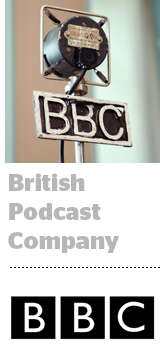
The BBC is testing audio ads for the first time in its 96-year history.
The British broadcasting giant is partnering with podcast platform Acast to monetize inventory outside of the UK in a deal announced Tuesday.
The ads will only run on podcasts accessed by international audiences. Because the BBC operates as a public service in its home country, where UK taxpayers fund the content, UK users never see ads.
But for BBC World Services, its international division, the opportunity is ripe, especially within its podcasts. The broadcaster draws around 30 million downloads per month outside of the UK across its 500 shows, said Mary Hockaday, controller of BBC World Service English.
“For a while now we’ve been asked to add commercial funding to supplement income and reach our audience on new platforms,” she said. “Podcasting felt like a really appropriate place to do that.”
Although the BBC has some experience running audio ads on its Berlin-based FM radio station, its monetization constraints in the UK led to reticence over jumping into the music streaming or podcast world, where ads are targeted to audiences with similar characteristics across the globe.
The BBC needed a partner that could be sensitive to its restrictions.
While many publishers and brands in the podcast space favor host-read sponsorships, for example, BBC journalists can’t endorse brands, and the company isn’t allowed to serve ads to certain listeners. The media giant chose Acast in part because of its ability to dynamically serve prerecorded ads to specific audiences, a service Acast performs for the more than 2,000 shows in its network.
“We basically preproduce audio and can deliver that at scale,” said Acast CEO Ross Adams.
Acast can automatically recognize if a listener is located in the UK and ensure ad-free delivery. For listeners outside the UK, Acast dynamically inserts ads based on their location, device type, context and time of day layered with third-party demographic data.
Adams acknowledges that the podcast space still lacks identity-based targeting. It’s a drawback, but not for the BBC, which is attracted to podcasts because they provide a brand-safe environment for advertisers.
Although Acast launched a programmatic private marketplace for podcasts six months ago, the the BBC isn’t ready to go all-in on automation just yet. For the moment, it’s more comfortable limiting its sales to direct buys repped by Acast, which works with roughly 200 brands globally each month.
“We want to [advertise] in a way that fits our editorial and governance approach,” Hockaday said. “We look to be really transparent with the audience about a separation between the editorial and the ad content.”
Many publishers Acast represents feel the same about programmatic, Adams said. Acast has partnerships with a host of high-profile publishers, including The Economist, Vice, Vogue and Financial Times. Acast gets most of its business from direct deals with agencies and brands.
But Adams has a feeling they’ll soon be changing their tune.
“Programmatic in audio is going to be a very big thing toward the end of the year and especially next year,” Adams said. “That’s a very small part of our business, but it’s growing very quickly.”
Over at the BBC, however, it’s still early days. The ability to grow audience and introduce ad-supported content to a new class of digital-first consumers will be the first measures of its success.
“Podcasting is proving a wonderful way to reinvigorate the audio space,” Hockaday said. “It’s an important way for us to reach audiences who don’t necessarily have a radio habit but are developing an audio habit. I’d love to see how some of that ripples back over the radio space.”
This post was syndicated from Ad Exchanger.

More Stories
Hawaii Reporter Moving to Oregon Fox Station
Xfinity Welcomes Fortune-Seekers to the Mythical World of Boomtown
Dismantling Google Will Not Fix the Adtech Ecosystem